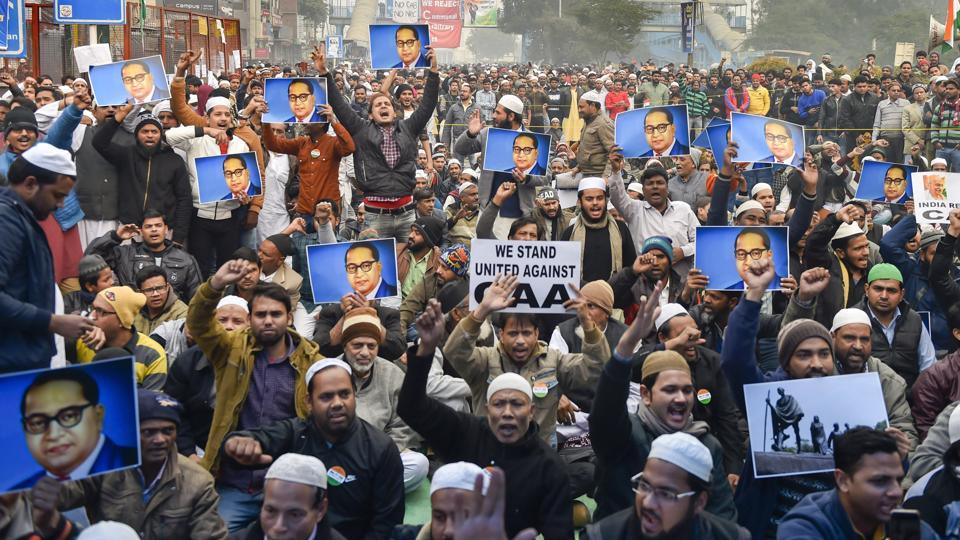
India slips 10 spots in Democracy Index due to ‘erosion of civil liberties’
India dropped 10 places in the latest Democracy Index released by the Economist Intelligence Unit, and retained its status as a “flawed democracy”. The country was ranked 51 on the index for 2019 – its lowest since the rankings began in 2006.

India dropped 10 places in the latest Democracy Index released by the Economist Intelligence Unit, and retained its status as a “flawed democracy”. The country was ranked 51 on the index for 2019 – its lowest since the rankings began in 2006.
India’s overall score fell from 7.23 out of 10 in 2018 to 6.90 last year, mainly due to an “erosion of civil liberties”, the Bloomberg report said. The country was ranked 42 in 2017 and 41 in 2018.
According to the Economist Intelligence Unit, the annual Democracy Index is based on five categories: electoral process and pluralism, civil liberties, functioning of government, political participation and political culture. The index ranks countries based on their scores on 60 indicators, and then classifies them as one of four types of regime: full democracy, flawed democracy, hybrid regime and authoritarian regime.
In the Asia and Australia region, India ranked eighth, behind countries such as Timor-Leste, Malaysia and Taiwan.
Also read | SC refuses to stay CAA, refers pleas to 5-judge Constitution bench
The Democracy Index referred to the changes in Jammu and Kashmir and the controversial implementation of the National Register of Citizens (NRC) in Assam while describing what it said was the “democratic regression” in India, the world’s largest democracy.
“The Indian government stripped the Jammu and Kashmir (J&K) state of its special status by repealing two key constitutional provisions granting it powers of autonomy,” it said, referring to Article 370 of the Constitution and Article 35A, which prevented residents from other states from purchasing land or property in Kashmir.
“Following the removal of these provisions of the Constitution and the passage of a new Jammu and Kashmir Reorganisation Act of 2019, J&K no longer enjoys statehood and is now divided into two union territories: one that retains the name Jammu and Kashmir, and Ladakh,” it said.
“Ahead of the move, the government deployed a large number of troops in J&K, imposed various other security measures and placed local leaders under house arrest, including those with pro-India credentials. The government also restricted internet access in the state,” it added.
The Democracy Index noted that the “citizenship registration exercise” in Assam had “excluded 1.9m from the final list of the National Register of Citizens (NRC)”.
“The vast majority of people excluded from the NRC are Muslims,” it said, adding the ruling BJP “says that most of the people excluded from the list are immigrants from Bangladesh, whose government denies this.”
It added: “Critics claim that the exercise targets the Muslim population and will lead to demographic changes along religious lines. There are almost 200m Muslims in India: the figure was 195,810,000 in 2015, representing 14.9% of the total population of India and 10.5% of the total Muslim population of the world… At current growth rates India will be home to the world’s biggest Muslim population by 2060, with a Muslim population of more than 333m or 19.4% of the total population.
“The new citizenship law has enraged the large Muslim population, stoked communal tensions and generated large protests in major cities.”
Also read | Kerala invokes Article 131 to challenge CAA in Supreme Court
Last year’s index studied political systems across 165 countries and two territories. The Economist Intelligence Unit said the year 2019 was the worst for democracies since 2006, with the average global score falling to 5.44 out of 10 from 5.48 in the preceding year.
Only 22 countries, with a combined population of 430 million, were classified as “full democracies” in 2019, while more than a third of the world’s population were found to be living under authoritarian rule. The list was topped by Norway, while North Korea was at the bottom.
The global decline was driven mainly by regions such as Latin America, Sub-Saharan Africa, West Asia and North Africa. Most Asian countries declined in the rankings in a “tumultuous” year that saw various protests and government restrictions on freedom.

